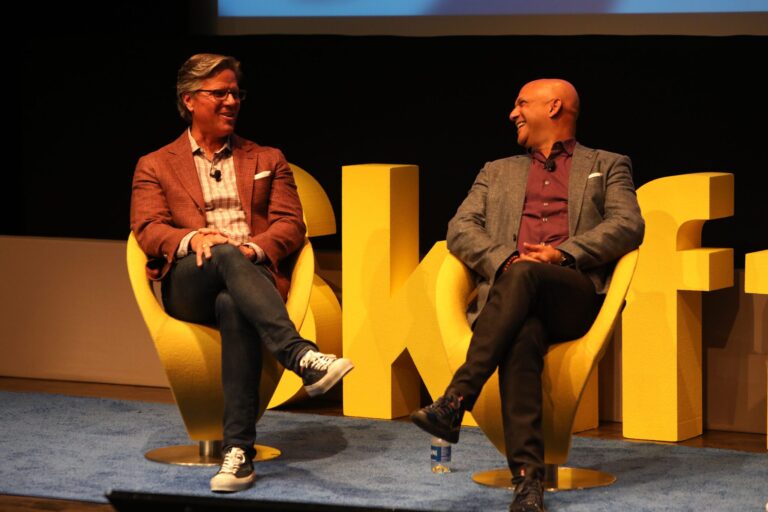Skift Take
— Cristiana Schiaudone
Chris Hemmeter, managing director at Thayer Ventures, and Kurien Jacob, partner and managing director at Highgate Technology Ventures, sat down with Sean O’Neill, senior hospitality editor at Skift, to discuss how hotel technology needs to evolve.
‘We are in this mess. We can’t change it.‘
- “We have incredible tech debt right now and we’re in serious trouble because while our industry, primarily here in hospitality, has been piling on technology to kind of play catch-up, the traveler has changed, and I mean, humans have changed how they interact with every aspect of their lives,” Hemmeter said.
- “We’re in this mess, we can’t change it. Our industry is so fragmented that we can’t just rip out everything we have and replace it,” Jacob said.
- Hemeter said that while in the past the travel industry may have shied away from automation and technology in hospitality delivery, the world is a different place now: “When we take a closer look at how Gen Z engages with travel, inspiration, planning and even booking, we find that a staggering percentage of their activity is done through social networks and connections. An unbelievable percentage of their decisions about where they stay are driven by what they find on streaming content, which is truly shocking.”
- “Customers don’t want to stand at a front desk like a bank teller, wait 10 minutes, be asked for their identity again, and be given a room key. They want to choose what they want to be involved in and decide when they want to be in control. So there’s a complete disconnect between their interests and what a technology stack can deliver.”
- The travel industry is so far behind that even something as simple as room allocation is still done manually. “Go to any hotel and check in, in 90% of cases, someone is sitting there all night or all day deciding what room you’re going to get. I don’t know what their criteria are, maybe they like your first name or your last name or some other weird thing, but some people obviously pay a higher price, so they might get a different room. But room allocation can all be automated, why does it even exist?” says Jacob.
What do AI and Google mean for OTAs?
Can AI drive direct bookings and bring about the end of OTAs? It will be a battle, for sure.
- “The biggest battle that’s going to play out over the next few years, and over the past few years, is between search, which is the origin of travel – Google – and the OTAs, which are their biggest financial customers,” Hemeter said.
While there may be conflicts, Jacob said Google will never remove existing OTAs as intermediaries.
- “That’s never going to happen. And the reason is that the industry relies on it, the cheapest rates today are found on OTAs. And then there are people who say, run this promotion. They’re going to run a promotion. They’re getting a lot of bookings from there. There’s no time to look elsewhere, whatever happens. This is not a technology issue. This is a behavioral issue.”
Photo credit: Chris Hemmeter, Thayer Ventures and Kurien Jacob, Highgate Technology Ventures. Skift Data + AI Summit 2024.
Subscribe to Skift Pro for unlimited access to articles like this.
Read {{monthly_count}} of {{monthly_limit}} free stories
Subscribe now
Subscribe to Skift Pro for unlimited access to articles like this.
Story count will be reset on {{monthly_reset}}
Subscribe now
Subscribe to Skift Pro for unlimited access to articles like this.
Subscribe now

